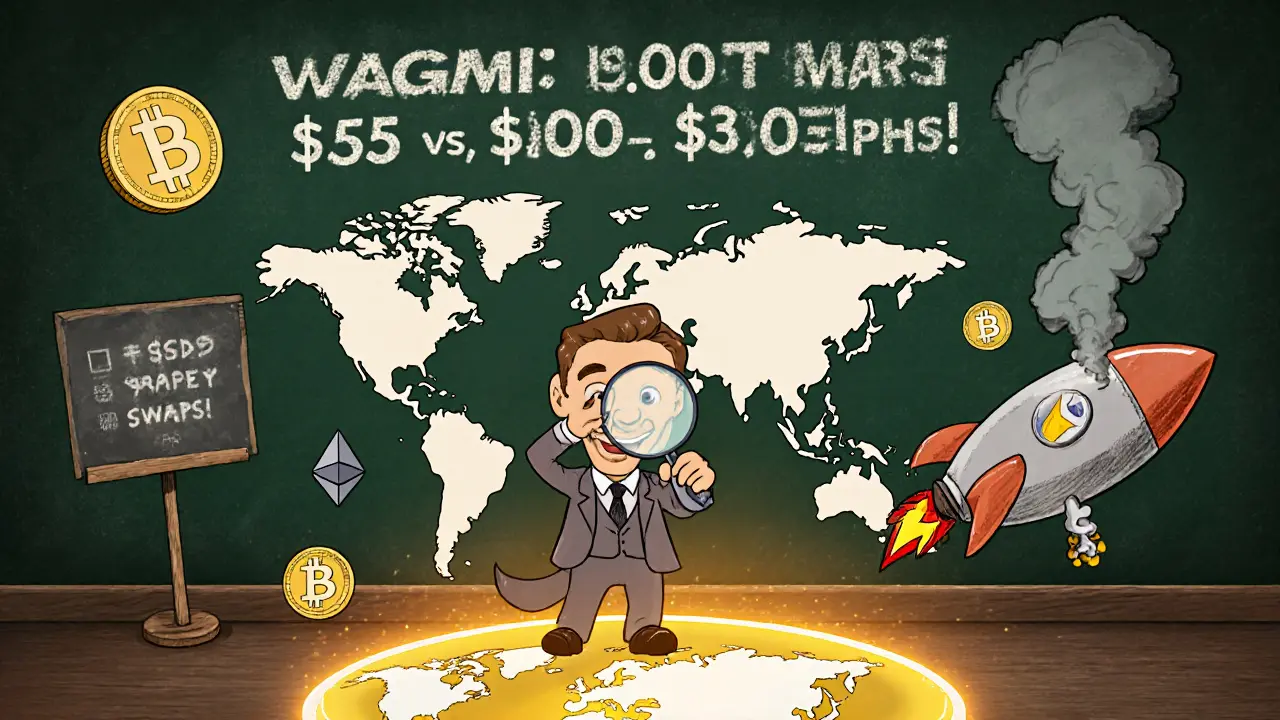Decentralized Crypto Exchange: What It Is and Why It Matters
When you trade on a decentralized crypto exchange, a platform that lets users trade directly with each other without a central authority. Also known as a DEX, it runs on blockchain code instead of a company’s servers. That means no one holds your keys, no one freezes your account, and no one can shut it down. This isn’t theory—it’s how real people trade on platforms like Uniswap, PancakeSwap, and even smaller ones like MiaSwap v2 and WagyuSwap, which show up in our posts.
What makes a decentralized crypto exchange, a platform that lets users trade directly with each other without a central authority. Also known as a DEX, it runs on blockchain code instead of a company’s servers. different from something like Bitstamp or Kraken? Simple: centralized exchanges are like banks—they control your money. DEXs are like open markets. You bring your crypto, swap it with someone else’s, and the trade happens automatically through a smart contract, self-executing code on a blockchain that runs when conditions are met. No human steps in. That’s why you see so many posts here about risks like reentrancy attacks or oracle manipulation—those are flaws in the code that can cost people money. And they’re not rare. Over $1.1 billion has been lost to bad smart contracts since 2016.
People use DEXs for different reasons. Some want privacy. Others want to trade new tokens before they hit big exchanges. A lot of traders in places like Bangladesh and Russia use peer-to-peer methods to buy crypto because local banks won’t touch it. That’s where peer-to-peer trading, direct buying and selling of crypto between individuals, often using local payment apps. comes in. It’s not a DEX, but it’s part of the same movement—bypassing control. And while some DEXs like MiaSwap v2 have real liquidity and activity, others like TaurusEX or Coinquista are either fake or dangerously unverified. You need to know the difference.
There’s no single rulebook for DEXs. Some run on Ethereum, others on Solana or BSC. Some require you to connect your wallet. Others let you trade with just a browser. But they all share one thing: they put power back in your hands. That’s why you’ll find posts here about airdrops from DEXs like WagyuSwap, about how platform tokens power dApps, and about why some exchanges vanish overnight. This isn’t just about trading. It’s about who controls the system—and whether you’re part of it or just a customer.
What follows is a collection of real, unfiltered reviews, breakdowns, and warnings about DEXs, tokens, and the people behind them. Some platforms are legit. Others are scams dressed up as innovation. You’ll see what works, what fails, and why. No fluff. No hype. Just what you need to know before you click ‘swap’.
WAGMI (Metis) Crypto Exchange Review: Is It Worth It for Small-Scale DeFi Traders?
by Johnathan DeCovic Nov 7 2025 22 CryptocurrencyWAGMI (Metis) is a low-fee, fast decentralized exchange for trading Metis-native tokens. Perfect for small swaps under $2,000, but avoid large trades due to high slippage and thin liquidity.
READ MORE
